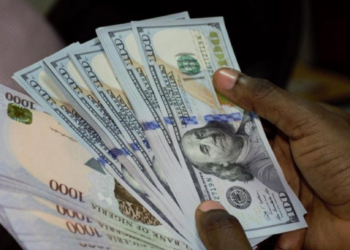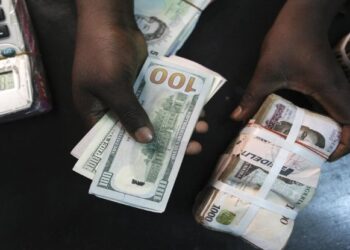Nigeria’s foreign exchange (FX) reserves have increased by approximately $535 million over the past 28 days, as the official market continues to grapple with a scarcity of dollars.
The latest data from the Central Bank of Nigeria (CBN) reveals a steady upward trend in the reserves, showcasing the country’s resilience in maintaining its financial stability amidst challenging economic conditions.
The CBN reported that the FX reserves rose from $32.107 billion on April 19, 2024, to $32.642 billion by May 16, 2024. This growth represents a substantial boost for the country’s external reserves, which play a crucial role in stabilizing the naira and supporting the economy.
69% decline in FX turnover on the official market last weekend
The official forex market experienced a significant drop in turnover between Thursday, May 16 and Friday, May 17, 2024, recording a steep 69.4% decline.
On Thursday, the forex turnover stood at $272.86 million, indicating a robust trading day with substantial market activity. However, this figure drastically fell to $83.5 million on Friday, highlighting a stark contrast in the volume of transactions within just a 24-hour period. This was the lowest turnover rate since January 20, 2024.
This sharp decline in forex turnover underscores the volatility and unpredictability that currently characterize the FX market.
On Thursday, the turnover had fallen marginally by 5.63% to $272.86 million. This squeeze in forex liquidity likely contributed to the naira’s sharp decline in value on the official market on that day.
Unstable currency
The exchange rate between the naira and dollar closed at N1,497/$1 on Friday, May 17, 2024. It was a 2.5% gain from the N1,593.9/$1 recorded a day earlier, which was the weakest since March 20 this year.
The exchange rate between the naira and dollar in the official NAFEM Window depreciated to N1,533.99/$1 on Thursday, May 16, 2024. This was a 4.89% drop in one day.
The trading dynamics on Friday further affirmed the erratic nature of the market. During intra-day trading, the exchange rate peaked at an intra-day high of N1,555/$1, highlighting a temporary surge in dollar sales.
Conversely, the intra-day low was N1,415/$1, reflecting periods of heightened buying pressure on the naira.
The sharp movements within a single trading day suggest heightened uncertainty and instability, making it challenging for businesses and investors to plan their financial activities.
What You Should Know
- The rise in FX reserves is a positive signal for the Nigerian economy, indicating improved foreign investment inflows and better management of the nation’s external assets.
- However, despite this growth, the official foreign exchange market continues to face challenges due to the scarcity of dollars. This shortage has led to increased pressure on the naira, with importers and businesses finding it difficult to access foreign currency for their operations.
- Although the apex bank claimed it was not defending the naira, the CBN has been taking proactive measures to manage the situation, including interventions in the FX market to stabilize the naira and ensure the availability of dollars for critical sectors. Additionally, the government is exploring various strategies to boost dollar inflows, such as promoting non-oil exports and attracting foreign direct investments.
- Despite the reforms and other efforts to ensure naira stability, the currency has moved from being one of the best performing currencies to one of the worst performing currencies recently.
- As Nigeria navigates these economic challenges, the increase in FX reserves provides a buffer that can help mitigate potential shocks and support economic recovery efforts.
























